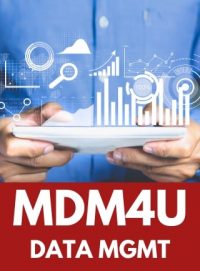MDM4U - Grade 12 Mathematics of Data Management

Course Description For MDM4U Grade 12 Mathematics of Data Management Online Course
Grade 12 Data Management (MDM4U) broadens students’ understanding of mathematics as it relates to managing data. Students will apply methods of organizing and analysing large amounts of information; solve problems involving probability and statistics; and carry out a culminating investigation that integrates statistical concepts and skills. Students will also refine their use of the mathematical processes necessary for success in senior mathematics. Students planning to enter university programs in business, the social sciences and the humanities will find this course of particular interest.
Summary Of Units And Timelines For Grade 12 Mathematics of Data Management MDM4U
Below is the suggested sequence of course unit delivery as well as the recommended number of hours to complete the respective unit. For complete details of targeted expectations within each unit and activity, please see each Unit Overview found in the MDM4U course profile.
| Unit Order | Unit Name | Suggested Time |
|---|---|---|
| Unit 0 | Prerequisite Review of Concepts | 5 Hours |
| Unit 1 | Organization of Data | 20 Hours |
| Unit 2 | Statistical Analysis | 20 Hours |
| Unit 3 | Introduction to Probability | 21 Hours |
| Mid Semester Point | ||
| Unit 4 | Probability Distributions & Predictions | 21 Hours |
| Unit 5 | Culminating Investigation | 21 Hours |
| FINAL | Final Exam | 2 Hours |
| View Sample Gradebook Total | 110 Hours | |
Please be aware that, as per Ministry guidelines, OVS has a mandatory minimum requirement of 14 days enrollment for students to be eligible for a midterm report card and 28 days enrollment to be eligible for a final report card.
Fundamental Concepts Covered in Grade 12 Online Course
This course broadens students’ understanding of mathematics as it relates to managing data. Students will apply methods for organizing and analysing large amounts of information; solve problems involving probability and statistics; and carry out a culminating investigation that integrates statistical concepts and skills. Students will also refine their use of the mathematical processes necessary for success in senior mathematics. Students planning to enter university programs in business, the social sciences, and the humanities will find this course of particular interest.
Teaching and Learning Strategies in an Online School
The mathematical processes are to be integrated into student learning in all areas of this course.
Throughout this course, students will:
- Problem Solving – develop, select, apply, compare, and adapt a variety of problem-solving strategies as they pose and solve problems and conduct investigations, to help deepen their mathematical understanding
- Reasoning and Proving – develop and apply reasoning skills (e.g., use of inductive reasoning, deductive
reasoning, and counter-examples; construction of proofs) to make mathematical
conjectures, assess conjectures, and justify conclusions, and plan and construct
organized mathematical arguments; - Reflecting – demonstrate that they are reflecting on and monitoring their thinking to help clarify their understanding as they complete an investigation or solve a problem (e.g., by assessing the effectiveness of strategies and processes used, by proposing alternative approaches, by judging the reasonableness of results, by verifying solutions)
- Selecting Tools and Computational Strategies – select and use a variety of concrete, visual, and electronic learning tools and appropriate computational strategies to investigate mathematical ideas and to solve problems
- Connecting – make connections among mathematical concepts and procedures, and relate mathematical ideas to situations or phenomena drawn from other contexts (e.g., other curriculum areas, daily life, current events, art and culture, sports)
- Representing – create a variety of representations of mathematical ideas (e.g., numeric, geometric, algebraic, graphical, pictorial representations; onscreen dynamic representations), connect and compare them, and select and apply the appropriate representations to solve problems
- Communicating – communicate mathematical thinking orally, visually, and in writing, using precise mathematical vocabulary and a variety of appropriate representations, and observing mathematical conventions
Assessment & Evaluation
As summarized in Growing Success 2010, the primary purpose of assessment and evaluation is to improve student learning. Information gathered through assessment helps teachers to determine students’ strengths and weaknesses in their achievement of the curriculum expectations in each course.
This information also serves to guide teachers in adapting curriculum and instructional approaches to students’ needs and in assessing the overall effectiveness of programs and classroom practices. As part of assessment, teachers provide students with descriptive feedback that guides their efforts towards improvement. Evaluation refers to the process of judging the quality of student work on the basis of established criteria, and assigning a value to represent that quality. All curriculum expectations must be accounted for in instruction, but evaluation focuses on students’ achievement of the overall expectations.
A students’ achievement of the overall expectations is evaluated on the basis of his or her achievement of related specific expectations. Teachers will use their professional judgement to determine which specific expectations should be used to evaluate achievement of overall expectations, and which ones will be covered in instruction and assessment but not necessarily evaluated. In order to ensure that assessment and evaluation are valid and reliable, and that they lead to the improvement of student learning, teachers must use assessment and evaluation strategies that:
- Address both what students learn and how well they learn
- Are based both on the categories of knowledge and skills and on the achievement level descriptions given in the achievement chart
- Are varied in nature, administered over a period of time, and designed to provide opportunities for students to demonstrate the full range of their learning
- Are appropriate for the learning activities used, the purposes of instruction, and the needs and experiences of the students
- Are fair to all students
- Accommodate students with special education needs, consistent with the strategies outlined in their Individual Education Plan
- Accommodate the needs of students who are learning the language of instruction
- Ensure that each student is given clear directions for improvement
- Promote students’ ability to assess their own learning and to set specific goals
- Include the use of samples of students’ work that provide evidence of their achievement
- Are communicated clearly to students and parents at the beginning of the school year and at other appropriate points throughout the school year.
The achievement chart outlines four categories of knowledge and skills. They include; knowledge and understanding, thinking, communication and application. Teachers will ensure that student work is assessed and/or evaluated in a balanced manner with respect to the four categories, and that achievement of particular expectations is considered within the appropriate categories. A final grade is recorded for this course, and a credit is granted and recorded for this course if the student’s grade is 50% or higher. The final grade for this course will be determined as follows:
- Seventy percent of the grade will be based on evaluations conducted throughout the course. This portion of the grade should reflect the student’s most consistent level of achievement throughout the course, although special consideration should be given to more recent evidence of achievement.
- Thirty percent of the grade will be based on a final evaluation and administered towards the end of the course.
Accommodations for students with an IEP in an Online School
All students can succeed. Some students are able, with certain accommodations, to participate in the regular course curriculum and to demonstrate learning independently. Accommodations allow access to the course without any changes to the knowledge and skills the student is expected to demonstrate. The accommodations required to facilitate the student’s learning can be identified by the teacher, but recommendations from a School Board generated Individual Education Plan (IEP) if available can also be consulted. Instruction based on principles of universal design and differentiated instruction focuses on the provision of accommodations to meet the diverse needs of learners.
Examples of accommodations (but not limited to) include:
- Adjustment and or extension of time required to complete assignments or summative tasks
- Providing alternative assignments or summative tasks
- Use of scribes and/or other assistive technologies
- Simplifying the language of instruction
Resources
Teachers will bring additional resources and teaching materials that provide a rich and diverse learning environment. Units in this course profile make specific reference to the intended textbook for this course but can be substituted for any relevant and approved text.
- Speijer, Jacob. McGraw-Hill Ryerson Functions 11. Toronto: McGraw-Hill Ryerson, 2009.
- Small, Marian. Nelson Functions 11. Toronto: Nelson Education, 2008.
Ontario Secondary School Diploma (OSSD) Requirements for all course.
Sample Lesson Video: Grade 12 Mathematics of Data Management (MDM4U)
Frequently Asked Questions
What is MDM4U?
MDM4U is a Grade 12 Mathematics of Data Management course at a University preparation level.
What are 4U courses?
4U refers to the Grade level of the courses and the pathway. 4 means it is a grade 12 course and U means it is a university preparation course.
What is the prerequisite course for MDM4U?
How long does it take to complete the MDM4U online course?
At Ontario Virtual School (OVS) you can complete an online highschool credit courses as quickly as 4 weeks, or take as long as 12 months.
Will my marks be sent directly to OUAC or OCAS?
Student & Parent Recommendations
Google Reviews for MDM4U - Grade 12 Mathematics of Data Management


